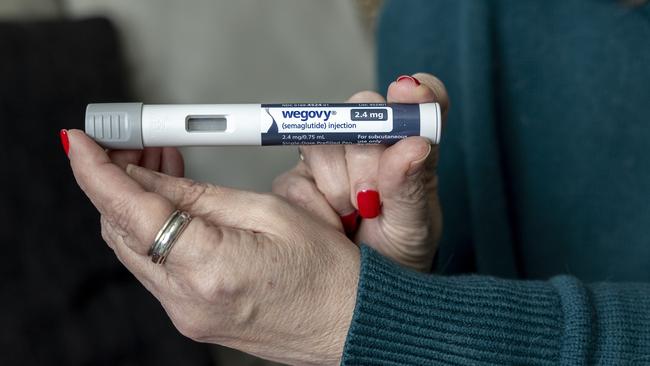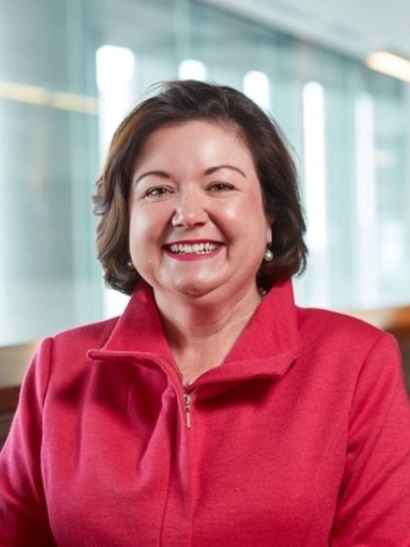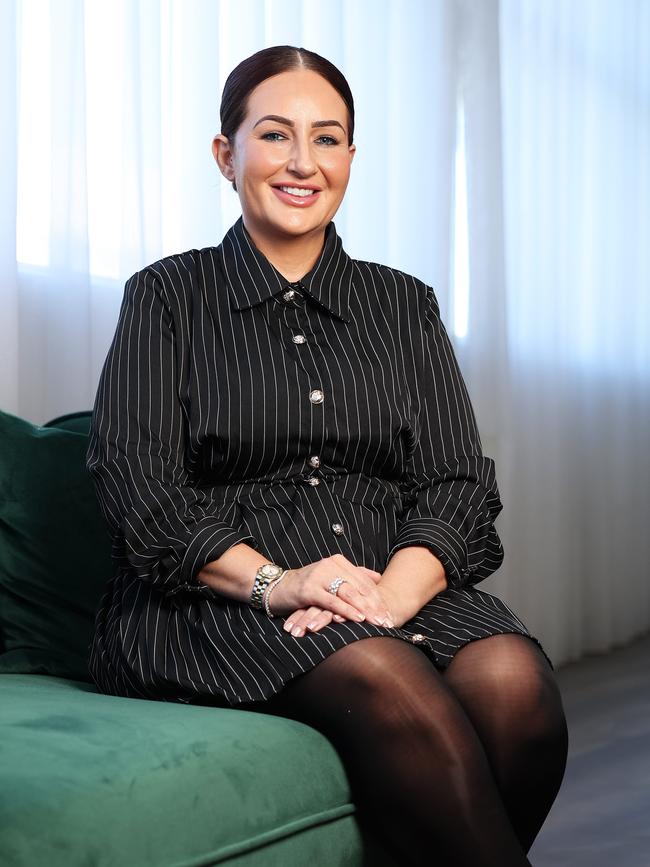Alarm at weight loss jabs prescribed within minutes in telehealth consults
Doctors and health experts have raised “grave concerns” about the ease of weight loss drugs being doled out online within minutes of telehealth consultations, warning it could have fatal consequences.
Weight Loss
Don't miss out on the headlines from Weight Loss. Followed categories will be added to My News.
Weight-loss drugs are being doled out within minutes in telehealth consults to patients, triggering warnings from health experts this is dangerous and potentially fatal.
The Sunday Telegraph has examined the ease of access to the likes of drugs Wegovy and Mounjaro, which can form part of a weight-loss plan. It can be revealed a remitted cancer patient was given access to the jab in a matter of minutes without a single health check.
One phone consultation can result in a script for Mounjaro delivered to patients’ doors without the health practitioner seeing them or verifying any medical history with their general practitioner.
The prescription of the drug by telehealth practitioners has triggered grave concerns from leading health specialists.

Cancer survivor and Sydney mum Louise Palmer has sounded the alarm after she was given a script without a single phone call.
“I went online and tried a telehealth service, filled out a form, and in two minutes was approved for Mounjaro – no video calls, or checks on my health history were carried out – it alarmed me,” she said.
“I see on the online chat groups that women are getting it through telehealth, and it scares me. There’s a craze for it, and it’s too easy to lie to get a script online.”
She said she “abandoned the telehealth consult” due to the lack of checks and balances, instead consulting her GP after dealing with four years of battling weight issues after hitting menopause.
“But I keep getting emails, text reminders and phone calls to complete the (telehealth) process to get the script.”
Normally weighing between 58 kgs and 60 kgs, the petite recruiter from Rhodes gained weight despite eating less and exercising more. When she was diagnosed as pre-diabetic, she consulted her doctor, concerned that she was following in her mother’s footsteps.
Her mother died from complications of the disease at 62.
Mounjaro is now being assessed by the federal government for inclusion on the Pharmaceutical Benefits Scheme (PBS) to treat Type 2 diabetes, after the company behind it logged its third bid to be subsidised.

Meanwhile, the Australian Therapeutic Goods Administration revealed that demand for Ozempic soared a staggering 5000 per cent in 10 years from 45,705 in July 2020 when it was listed in the PBS, to 2,574,854 last year.
One eastern suburbs socialite, who has been on Mounjaro for “almost a year”, confessed to using telehealth to get her hands on the drug after being turned away by her GP.
“The whole of the eastern suburbs is on it, even my doctor is,” she said. “He stopped giving it to me after four months, said I no longer needed it. Now I just go to a different telehealth service every month for a new script.”
But the hike in demand for the injectable has triggered “grave” concerns among health authorities and GPs, who have called for telehealth weight-loss services to be regulated or banned, citing that unchecked usage is “dangerous” and can trigger potentially fatal pancreatitis and exacerbate body dysmorphia.
The Australian Therapeutic Goods Administration has not approved Ozempic for weight loss, however, Mounjaro and Wegovy have received approval for fat-loss purposes.
Even where the two drugs are prescribed for weight-loss purposes, the TGA has indicated that is only “as an adjunct to a reduced-energy diet and increased physical activity”.


The Royal Australian College of General Practitioners’ representative Dr Terri-Lynne South warned the pressures on women to pursue a thin ideal and using off-label Mounjaro and Wegovy for weight management is fuelling disordered eating, body dysmorphia and malnutrition.
The RACGP Specific Interest Obesity Management group chairwoman said known side-effects included nausea, gallstones and potentially fatal pancreatitis.
“I have grave concerns in the growth of off-label prescribing for weight loss from single service telehealth providers – they are not good medicine and not about understanding the patient holistically,” she said. “Teleconsults are supposed to be videoed and carry out checks and balances, it’s deeply worrying that not all do.”
Meanwhile, a representative of the Medical Board of Australia said AHPRA was “concerned about practitioners using new models of care, including telehealth, in ways that may be putting profit ahead of patient welfare”.
Dr Susan O’Dwyer, the chair of the Medical Board of Australia, said doctors involved in high volume telehealth consultations should “reflect on their practice”.
“The Board would consider what proportionate regulatory action may be necessary to protect the public and support the practitioner to practise safely and ethically.”

Registered nurse and cosmetics specialist Courtney Dobusch, 42, has been administering Wegovy jabs for weight loss since October and had shed almost 15kg after it was prescribed by her GP.
“I was overweight and I was really struggling to shift it when I found out I had already gone through early menopause, which made things even harder,” she said.
“I’m at 82kg now. These deals on offer are like a sales pitch – it makes me wonder if there’s a pharmaceutical benefit to them. Telehealth services need to be regulated, they can put health at risk.”
Double Bay Doctor GP James Kelly said one in three consults is for Mounjaro or Wegovy to treat diabetes or for weight loss. He labels this revolutionary medicine “akin to the discovery of penicillin in the modern day”.
“I give it to those who meet the TGA recommendations: women in perimenopause or in menopause with weight gain,” he said.
“Occasionally, I get women who want it for weight loss but don’t need it and I’ll turn them away. I have no doubt some will then go and get it through telehealth weight loss services.
“But they are manned by medical officers with a general medical registration – not specialist GPs – who have no vested interest in patient care. It’s very dangerous.
“The people who run these services have one interest: To make money.”


Meanwhile, GP Jason Cook at Newington Medical Practice called for telehealth consults for the drugs to “be banned”. “They’re not regulated like us who run proper accredited practices and have to deal with problems that may arise from prescribing weight loss drugs.”
Western Sydney teacher Allison Hall, 46, says she has shed 17kg since she started Mounjaro in December, although this step was taken in consultation with and on the advice of her GP.
The 1.5m-tall mother of three, who used to weigh an average 76kg before giving birth to her third child when she was 39, entered peri menopause, which saw her pile on excess weight due to fluctuating hormones. When she lost the bulk of her weight, staff at her school in Sydney’s West asked: “You’re on that weight loss drug, aren’t you?”
“Everyone knows someone on it,” she said.
The boost in demand for Mounjaro has been spurred by a limited supply in Australia of Ozempic until the end of 2025, stemming from high global demand for off-label use for weight loss.
If the independent Pharmaceutical Benefit Advisory Committee (PBAC) approves the PBS listing, it would slash the cost of the jab from $285-$695 a month to $7.70 month in August, Australian provider Lilly will seek PBS listing for weight management.
The move would mirror the UK’s rollout in the NHS to reduce the risks of diabetes, heart attack and stroke.
“Data regarding prescriptions of Mounjaro is commercial-in-confidence. Lilly can confirm that the total number of patients receiving Mounjaro has more than doubled since September 2024,” a representative said.
Do you have a story for The Daily Telegraph? Message 0481 056 618 or email tips@dailytelegraph.com.au





